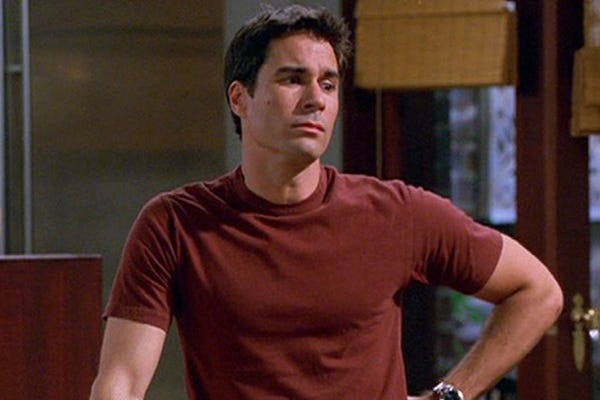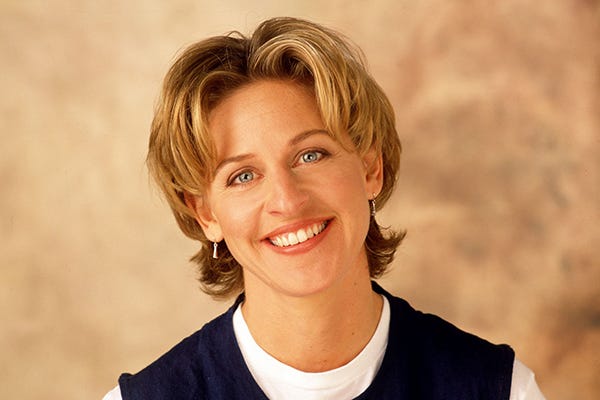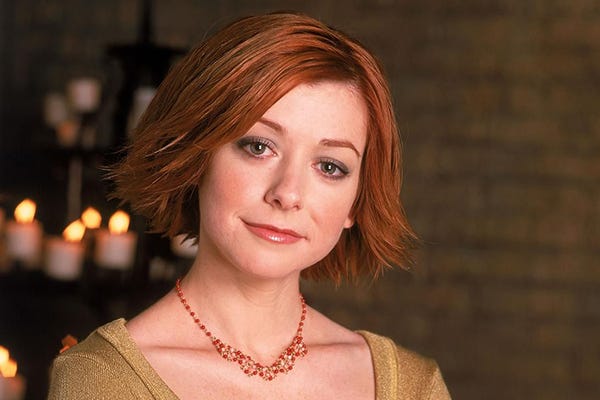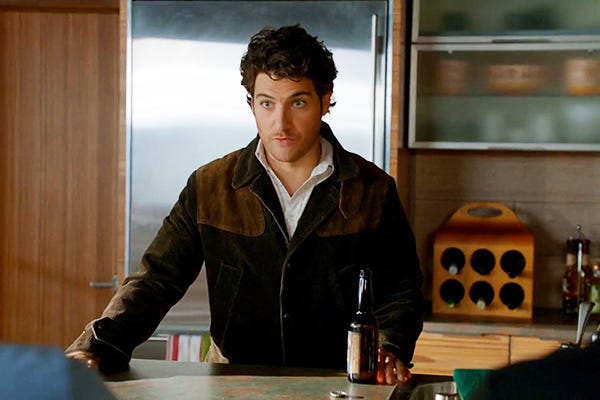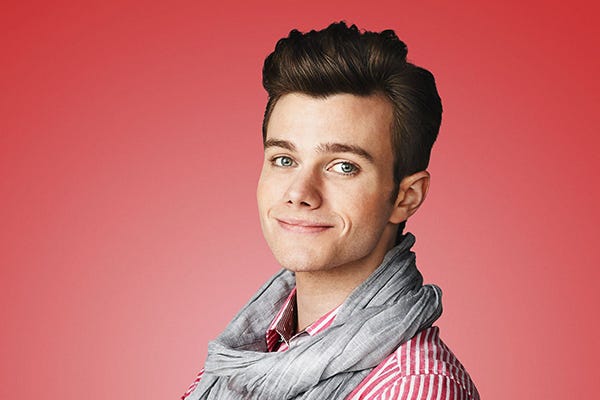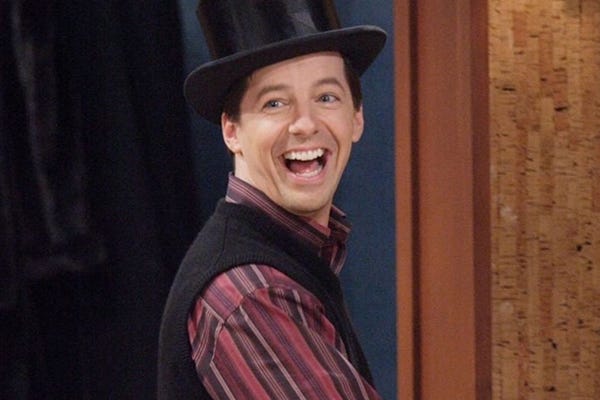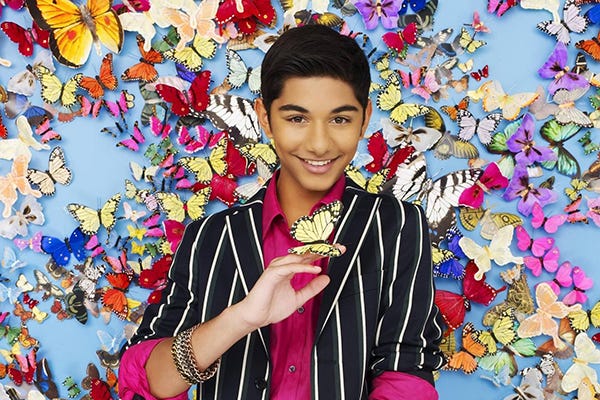Pioneers of Pride: Iconic and Inspirational Gay Characters in TV History
Characters who paved the way for LGBTQ+ representation on television
It wasn’t that long ago that LGBTQ+ characters weren’t represented in really any capacity on our television screens. Over the last 25-30 years, that has changed slowly with the introduction of key characters into the mainstream that shifted the conversation. This list is far from complete, but here are some of the characters in TV that we love for their significant impact.
Will Truman, Will & Grace
In 1998, NBC had already had some experience with sitcoms about the concept of found family. Friends and Seinfeld, both set in New York City, were ensemble shows about friends who are inseparable. Enter Will & Grace, a groundbreaking comedy about Will Truman and Grace Adler, former couple-turned-best friends and roommates. Why did they break up? Well, because Will finally came out as gay. Eric McCormack’s portrayal of Will is multifaceted: comedic yet vulnerable, Will can be completely secure in his sexuality one day and virtually insecure the next. His friendship with Grace propels the show through many seasons, and their conversations about what it means to be gay in America both reflected the cultural conversations of the time and brought levity to the subject through humor.
Jack McPhee, Dawson’s Creek
It’s hard to believe, but the first onscreen male gay kiss happened on the teen drama Dawson’s Creek in the year 2000. Jack McPhee (played by Kerr Smith) first appears in season two of the series, a foil for the eternal will they/won’t they couple Dawson and Joey. Jack’s character evolves over the course of the series, and his realization about his sexuality was incredibly impactful at the time of airing. The makers of Dawson’s Creek–and Smith–took great care to portray all of the insecurity, confusion, and struggle often associated with coming out as a teenager. The series also dealt with gay stereotyping head on and directly called out harmful language and homophobia, both internal and external.
Ellen Morgan, Ellen
It might be the most iconic queer moment in broadcast television history: in the spring of 1997, when Ellen Morgan, played by Ellen DeGeneres, announces to an entire airport she is gay, she becomes the first gay lead in a network TV show. It was a huge cultural event that received loads of media coverage, and it seemed the entire world was watching. While the star-studded episode which featured Laura Dern, Oprah, Melissa Etheridge and Demi Moore, won an Emmy and Ellen herself won a Peabody Award, the episode wasn’t met with all smiles. The sitcom was canceled a short while later and DeGeneres really felt that it ruined her life for a while–until she found her true calling hosting one of the most successful talk shows ever. But Ellen’s honesty about her sexuality started a conversation about gay and lesbian issues in the mainstream in a way that they hadn’t been discussed before, paving the way for modern characters that we now see on TV all the time.
Willow Rosenberg, Buffy the Vampire Slayer
Buffy is inarguably one of the most impactful television shows of all time, and in part it’s because it’s so character driven. Willow Rosenberg, sweet best friend to Buffy Summers in season one, has a huge character transformation over the course of the series. She becomes a powerful witch, falls in and out of love, and notably, discovers her own sexuality as a lesbian woman. Plus, she saves the world a couple of times. Willow is such a powerful lesbian character in pop culture history that in 2024, she won the Autostraddle March Madness competition! Discussing her win, the magazine asserts, “Willow’s win is…a testament to the way representation — particularly our first encounters with it — really imprints upon a person. We grow as people and our options for representation evolve with us, but there’s just something unshakeable about our connections to the first time we see ourselves. It’s deeper than just nostalgia.”
Max Blum, Happy Endings
Happy Endings had an immediate cult following as soon as it hit the air, and even though it’s been canceled since 2013, the fandom is still extremely strong (as evidenced by a new recent podcast from actors Adam Pally and Casey Wilson about the show). The show is about a group of friends who have known each other since college and are navigating their late twenties in Chicago. Max Blum, played by Pally, is openly gay. Max doesn’t conform to any typical gay character stereotypes, which is refreshing: he’s brash and messy and loves sports and video games; he resembles an over-aged stereotypical frat boy. It’s not until his family comes to town that we learn that Max hasn’t exactly come out to them, and his female friends take turns being his pretend girlfriend until he bravely comes clean to his (unfazed) parents. As Max navigates this, as well as potential serious relationships, we see him deal with his complicated feelings about his sexuality.
Kurt Hummel, Glee
Actor Chris Colfer won a Golden Globe for his portrayal of Kurt Hummel, an openly gay character on the hit TV series Glee. Kurt starts the series in the closet, but the first season follows his coming out journey. Throughout the series, viewers see Kurt go through lots of ups and downs: falling in love with a straight friend, facing ridicule and bullying, struggling to fit in at school. But Kurt is beloved for his honesty, compassion, and vulnerability as well as his epic love story throughout the series. Recently, Colfer, now a prolific New York Times bestselling author, shared how terrified he was to come out in Hollywood; the experience was not great. But his presence on the show was a beacon for many kids who were going through similar struggles with their identities.
Jack McFarland, Will & Grace
We can’t talk about Will without talking about Jack! Jack McFarland, played by the incredible Sean Hayes, is Will Truman’s eccentric, hilarious best friend. They seem like polar opposites personality-wise, but in the history of the two characters, Jack and Will are best friends because Jack helped Will during his college coming-out journey as he navigated through finding his sexual identity. Jack presents the slapstick comedy Will & Grace became known for, often getting himself into extreme, farcical situations with Karen, Grace’s secretary. But the levity Jack brings to the show is his absolute confidence and comfort in his sexuality, and through Jack, Sean Hayes showed a wide audience a gay character that they could fall in love with for his humor.
David Rose, Schitt’s Creek
Not only did Dan Levy create the beloved series, Schitt’s Creek, he also starred as one of its main characters, David Rose. David is neurotic, self-centered, flamboyant and has a superiority complex that is extremely funny. Throughout the series, we see David struggle with relationships, but never his sexuality. During a particularly lovely scene with friend Stevie, she asks about his wine preference, and he answers “I like the wine and not the label,” a metaphor for his bisexuality (not to actually put a label on it). And as viewers follow his ultimate love story with business partner Patrick, they learn that vulnerability is always a brave decision, regardless of sexual orientation. With the success of the show, a wide range of viewers could fall in love with this character representing a spectrum of the LGBTQ+ community they might not have understood otherwise.
Stanford Blatch, Sex and the City
Played by the late actor Willie Garson, Stanford Blatch is one of Carrie’s best friends on Sex & the City, which premiered in 1998. At a time where gay characters on TV were few and far between, or were presented stereotypically, Stanford is a real friend to Carrie and together they can talk about issues that they can’t with their same-gender friends. Stanford struggles with body image and confidence in a city full of other gay men that seem so well-adjusted. Willie Garson himself feared that he would offend the gay portion of the show’s audience, and was relieved to know that fans really connected with Stanford. At a time where gay representation in storytelling often came from a darker place (the AIDS crisis, shame, violence, etc.), Stanford’s character brought the joys of his experiences as a gay man to the forefront.
Mitchell Pritchett and Cameron Tucker, Modern Family
The megahit television series Modern Family was special because its very premise was about showing a large extended family while digging into the nuances of its unique nuclear families within. It combined tons of comedy with representation of different kinds of families, showing that the one thing every family has in common is love (and maybe some chaos). Mitchell Pritchett and Cameron Tucker are a gay couple, and throughout the series they are involved in a range of discussions about acceptance from their families and community as well as their upbringings and coming out stories. But perhaps the most heartwarming storyline is of the adoption of their daughter, Lily, conveying to a massive audience that there is a wide range of paths for gay couples to become parents.
Justin Suarez, Ugly Betty
Played by a young Mark Indelicato (who you can see now on Hacks, playing Deborah Vance’s hilariously devoted assistant), Justin Suarez was Betty Suarez’s precocious, confident young nephew on Ugly Betty which premiered in 2006. When Betty lands a job at Mode Magazine, preteen Justin is over the moon–he knows everything about fashion and pop culture gossip. What’s refreshing about the character is that he is so utterly himself: even as a child, Justin is confident in his flamboyance, isn’t shy about educating his aunt about fashion, and is devoted to his family. Mark reportedly received lots of fan mail from young people who thanked him for his portrayal, seeing themselves represented onscreen for the first time.
Who are your favorite iconic LGBTQ+ characters in TV? Let us know in the comments!
Want more? Head over to our Discord where you’ll find tons of other fans there chatting in our forums about the books, TV shows, movies, music, and games we all love! Don’t forget to follow us on Instagram, tumblr, and Spotify for more fandom content—and hit that subscribe button so you never miss a thing at rmrk*st!




